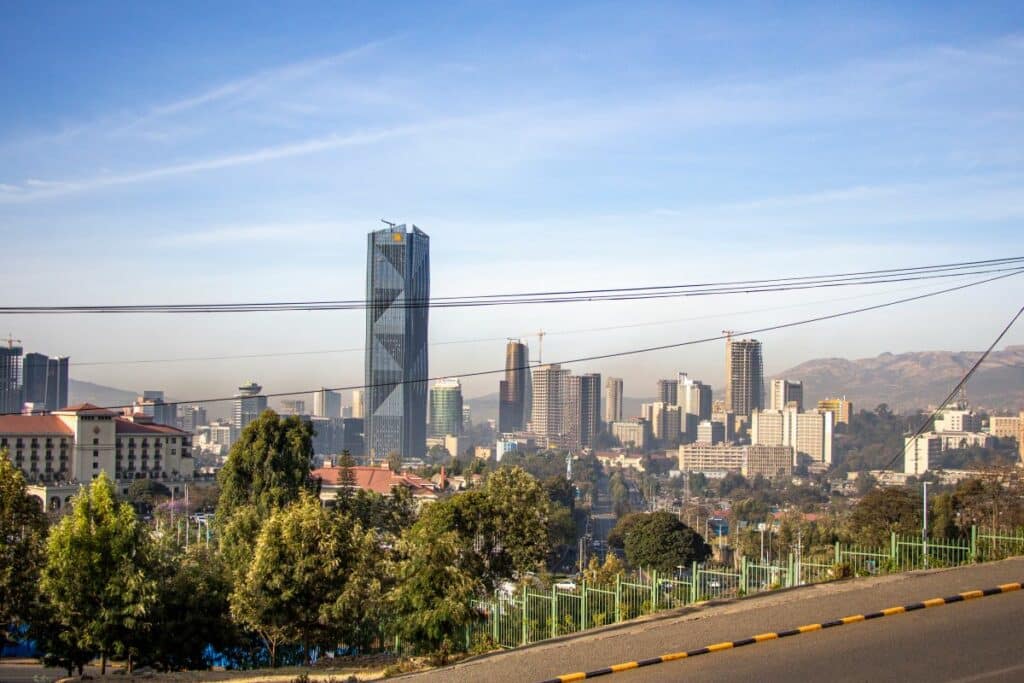Addis Ababa, Ethiopia
Table of Contents
Overview
Addis Ababa is the capital and largest city of the East African nation of Ethiopia. It is the economic, political, and cultural hub of Ethiopia, as well as one of the most populous cities in Africa. Situated in the foothills of the Entoto Mountains, Addis Ababa is home to over 4 million people and has grown from a small village to a bustling metropolis in just over a century.
History
The city of Addis Ababa was founded in 1886 by Emperor Menelik II. In the late 19th century, Emperor Menelik II used the settlement as his base of operations during the wars with neighboring countries. After the victory of the Battle of Adwa, Menelik II had the old town destroyed, and began rebuilding a new city just a few kilometers away. He named the city Addis Ababa, which translates to “New Flower.”
The city has played a key role in Ethiopian history ever since, becoming the country’s capital in 1889. In the early 20th century, it was the stage of several important political events, such as the signing of the Treaty of Uccialli in 1908 and the establishment of the Organisation of African Unity in 1963. During the Italian occupation of Ethiopia from 1936 to 1941, Addis Ababa was known as “the Pearl of Africa,” and the city’s population tripled in size before the Italians withdrew.
Culture
Addis Ababa is home to a rich and diverse culture, with influence from both the northern and southern parts of Ethiopia. The city is known for its lively music and vibrant nightlife, as well as its colorful markets and array of traditional cuisine. The historic neighborhoods of Addis Ababa are home to some of the country’s most iconic attractions, such as the National Museum and the cathedral of Menelik II.
The city also has some excellent educational facilities, including the Addis Ababa University, which was founded in 1950 and is now one of the biggest universities in the African continent.
Transportation
Addis Ababa is connected to many other parts of Ethiopia via an extensive network of roads, as well as an international airport. The city is also served by a modern light-rail system and several bus routes to other cities in Ethiopia.
Conclusion
Addis Ababa is a vibrant and dynamic city that serves as the capital and largest city of Ethiopia. It has a long and interesting history, as well as a diverse culture that blends centuries-old traditions with modern amenities. Addis Ababa is well-connected to the rest of Ethiopia and the world, with an expansive international airport and modern transportation networks. Whether you’re visiting for business or pleasure, Addis Ababa is a great place to explore and experience Ethiopian culture.

